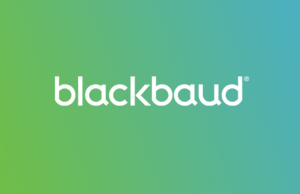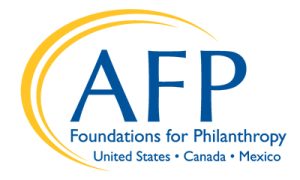With the popularity and exposure of auto racing soaring the past decade, everyone’s trying to reach the key demographics within the NASCAR fan base. Auto racing is no stranger to sponsorships, with company logos plastered all over cars, racetracks and no stitch left uncovered on driver’s duds. But even nonprofits are starting to get in on the action.
NASCAR (which stands for National Association for Stock Car Auto Racing) begins its season in February and at least three national nonprofits have boosted their visibility.
The NASCAR Foundation was started in January 2006 to assist drivers and tracks with their foundations and enhance the relationship between NASCAR and nonprofits, according to Sandy Marshall, executive director. It was an outgrowth of NASCAR Day five years ago when fans were asked to donate $5 for a commemorative pin. In its first year the event raised $650,000 and has grown each year, to $1.64 million this year, said Marshall.
"It became something a lot of drivers are doing, using their name to promote national nonprofits and promote things they’re passionate about," she said.
There are nearly three dozen foundations among NASCAR drivers and tracks. "They’re very passionate about things outside the track during the week," Marshall said, supporting a variety of causes, including conservation and the environment, animals and children’s hospitals. The foundation aims to provide support, whether through public relations and marketing or special events.
For instance, at the Sunoco Red Cross Pennsylvania 500 this past summer, the NASCAR Foundation had an online VIP auction and track walk at Pocono to benefit the Southeastern Pennsylvania Chapter of the American Red Cross.
Nonprofits are getting savvier and cause marketing programs are becoming more prevalent, said Marshall. Some of those nonprofits have "realized the reach of NASCAR, with 75 million fans, it’s probably a good place to engage them," she said.
The national headquarters of the American Red Cross launched its Red Cross Racing initiative (www.redcrossracing.com) this past spring. In addition to logos and names on cars and driver’s suits, the Red Cross has made boosting blood donations and CPR training a big part of its strategy, along with Red Cross Racing merchandise.
Like it is for other nonprofits, a corporate sponsor is critical to the Red Cross effort, with 3M providing a majority of the funding necessary for the exposure. Stephanie Millian, director of biomedical communication at the American Red Cross, estimated the effort cost the organization less than $1 million, with part of the cost being establishing a donor rewards program. Those dollars were redirected from other marketing-related efforts, she added, while 3M’s in-kind donation covered about two-thirds of the $3 million in costs.
Red Cross Racing features a visiting exhibit at each of the races it’s a part of, educating people about blood donations and CPR training, along with a sweepstakes to win a trip to the Phoenix race in November.
3M and Roush Fenway Racing donated a full paint scheme for two races by driver Greg Biffle, who also wore a Red Cross-branded fire suit and appeared in public service announcements (PSAs) for the Red Cross. The organization’s logo will be featured on the rear side panel of Biffle’s car during another eight races this year.
In addition to visibility on cars and drivers, the Red Cross aims to build awareness and donor loyalty through a donor rewards program. Participants in the Red Cross’ donor rewards program can accrue points for giving blood or organizing blood donation teams and the points can be exchanged for Red Cross Racing gear, such as T-shirts and jackets.
To date, the Red Cross has received more than 34,000 email addresses either from the track or through the Red Cross Racing page. It also has officially registered almost 16,000 participants to its donor rewards program and received nearly 8,000 blood donations through the effort. Blood is not donated on site at the races. Having captured those email addresses, the organization can send email reminders about the program, about continuing to donate blood or during times of blood shortages, Millian said.
Autism Speaks, a three-year-old charity based in New York City, has gotten its name on an entire race: the "Autism Speaks 400 presented by VISA" last year, and this year it was the "Best Buy 400 Benefiting Student Clubs for Autism Speaks" in Dover, Del. Sure, it can be a mouthful, but the exposure includes the charity’s logo on cars, announcers’ lapel pins and PSAs during the race, along with dozens of mentions going in and out of commercial breaks during an hours-long race.
As for how valuable a race sponsorship can be, company policy prohibits getting into details, but Michael Tatoian, executive vice president at Dover International Speedway, said the structure of sponsorships differs depending on "the goals and objectives of the specific sponsor. Typically, track sponsorships for a NASCAR Sprint Cup Series event can range anywhere in the six-to-seven figure range, depending on the level of exposure and structure."
Autism Speaks was selected by Fox Sports’ employees to benefit from the networks’ on-air initiatives. Other charities reaping the rewards from Fox include Make-A-Wish Foundation, which is tied into Fox’ Major League Baseball coverage; the Children’s Health Fund, matched to the National Football League regular and postseason, and Alzheimer’s Association, linked to college football coverage.
"Between FOX Sports and NASCAR, the partnership between those two has treated us very well," said Mark Roithmayr, president of Autism Speaks. There are a variety of times in a broadcast that promote autism and awareness, he said, bringing in corporate sponsors, as well as driving people to the Autism Speaks Web site, recognizing top volunteers and promoting the international conference. "That’s the part where they’re really trying to spur the volunteerism."
Autism Speaks pays nothing to be the title sponsor of the races, but gets all of the publicity associated with them, mentions during the broadcast and signage all over the racetrack, including its signature puzzle piece logo painted into the infield grass. The organization also gets use of a skybox and 1,000 grandstand tickets, which it uses to bring in and recognize volunteers.
Many times fans build a weekend around a NASCAR race, so there are multiple fundraising opportunities. Kiosks on the raceway grounds sell T-shirts, pins, hats, and provide information about autism. Proceeds from a weekend concert, as well as a portion of ticket sales from Dover International Speedway, benefit Autism Speaks. A walkathon around the track the night before the race also raises funds. Fundraising continues outside the race, with auctions of specially-designed driver’s helmets featuring the Autism Speaks puzzle piece logo, as well as auctions for the chance to announce "Gentleman, start your engines," driving in the pace car, or waving the starting flag.
For White Plains, N.Y.-based March of Dimes, its national marketing partner Ð FedEx Ð has done the heavy lifting, with some help from its marketing and communications team.
The Subway Fresh Fit 500 at Phoenix International Raceway in April was the first foray into NASCAR for March of Dimes. The race coincided with the rededication of WalkAmerica, the nonprofit’s signature event, to the March for Babies, of which FedEx also is a national sponsor/partner.
Most March for Babies events occur during the national commemoration weekend, which is the last weekend in April, and two weeks before the race. "It was great exposure and awareness of the name change for us," said Robert Lucas, senior vice president for revenue development at March of Dimes.
"This was a first-time effort so there was not any specific number of dollars that wanted to add to this or millions of impressions in that regard. Hopefully it’s one that will continue. Overall, it’s been a very, very positive experience for all of us," said Lucas. Denny Hamlin’s No. 11 Toyota featured a specially-designed FedEx Kinko’s Camry with the March of Dimes logo. March for Babies logos were displayed on the hood, in addition to its white and purple color scheme, with tiny footprints on the hood and rear of the car. Hamlin finished third in the race. "That didn’t hurt to have him be so competitive," Lucas said, adding to exposure for the nonprofit.
Lucas valued the sponsorship at about $500,000 per race, and that’s on top of other race-related fundraising for March of Dimes. Hamlin’s autographed helmet will be auctioned off this fall and a die-cast March of Dimes collectible car was rolled out in August. Hamlin’s team raised approximately $4,000 through the March for Babies Web site by reaching out to fans. The nonprofit also captured some names from fans that joined the team on March for Babies, he said.
It’s difficult for a nonprofit to get involved with NASCAR without a corporate partner, Lucas said. "That’s where to start obviously if you have corporate partner that has a race team. It’s probably at least half the battle of getting this done. Without that, it’s difficult to get done," he said. Leverage the relationship to add value to what the nonprofit and then company can bring. "This is major program for FedEx, and to extend into the cause arena made a lot of sense," Lucas said. NPT











